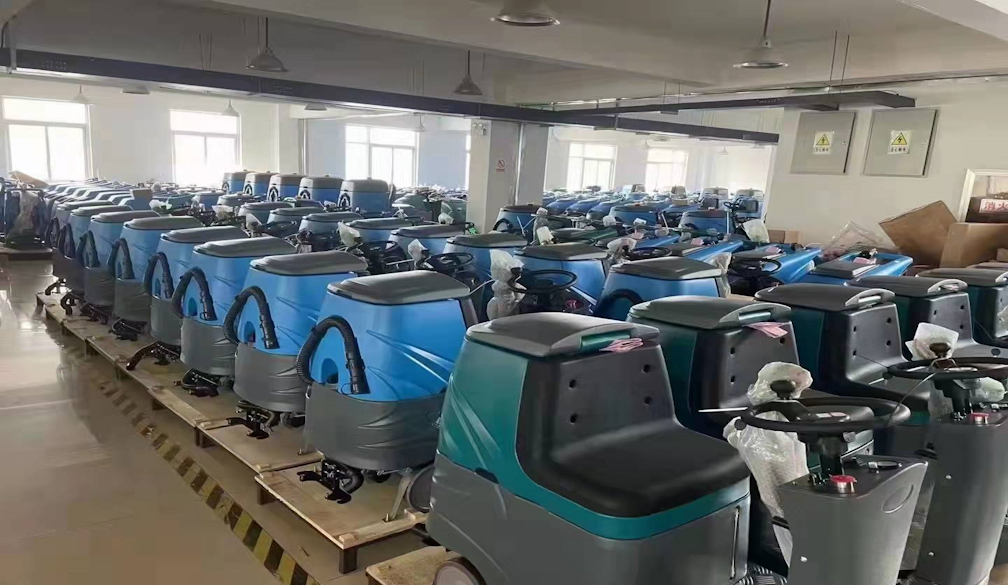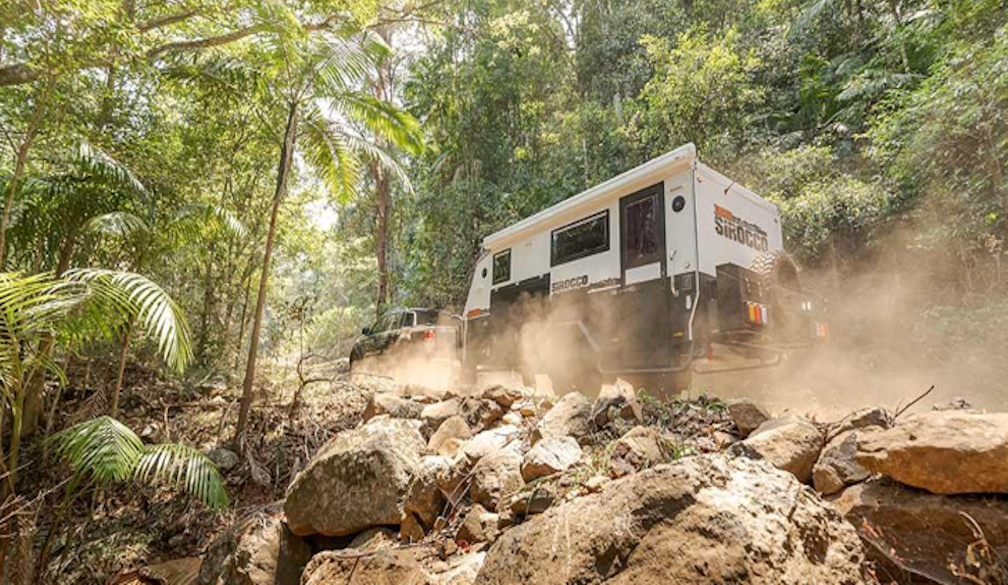Ride-On Sweepers and Noise Pollution Reduction
- Written by That's The Life

Noise pollution is an unavoidable natural issue in metropolitan regions that influences the well-being and prosperity of occupants. Among the many wellsprings of commotion contamination, one frequently ignored guilty party is the activity of conventional road sweepers. These enormous, diesel-controlled vehicles are fundamental for keeping our roads clean. However, they additionally contribute essentially to noise pollution. As of late, ride-on sweepers have arisen as a promising answer for this issue. In this article, we will investigate the effect of ride-on sweepers on noise pollution decrease, their advantages, and their capability to change the manner in which we keep up with clean roads.
The Problem of Noise Pollution
Noise pollution is the unwanted or harmful sound that disrupts normal activities and disturbs the peace and quiet of urban environments. It can originate from various sources, including road traffic, construction activities, industrial operations, and even street cleaning. Noise pollution not only affects human health but also has detrimental effects on wildlife and the overall quality of life in cities.
Traditional street sweepers, which are typically large vehicles equipped with rotating brushes and suction systems, have long been a necessary part of urban maintenance. They play a vital role in removing debris, dust, and litter from streets, helping to prevent pollution and maintain a clean and aesthetically pleasing environment. However, the very function that makes them essential – their cleaning mechanism – also makes them significant contributors to noise pollution.
The Noise Issue with Traditional Street Sweepers
Traditional street sweepers are typically powered by diesel engines, which generate a substantial amount of noise when in operation. The noise produced by these sweepers can be attributed to several factors:
Engine Noise
Diesel engines are known for their characteristic rumbling and clattering sounds. These noises can be quite loud, especially when the engine is under heavy load during street sweeping.
Brushes and Suction
The sweeping brushes and suction systems on traditional sweepers also produce noise as they come into contact with the road surface and collect debris.
Airflow
The airflow generated by the suction system can create a whirring or roaring sound as air is drawn into the sweeper.
Vibrations
The vibrations generated by the sweeping machinery can transfer noise through the vehicle's structure and into the surrounding environment.
The combined noise from these sources can be disruptive to residents, particularly when street cleaning operations occur during early morning or late-night hours. This disruption not only affects the quality of life but can also lead to sleep disturbances and related health issues.
Ride-On Sweepers: A Quieter Alternative
Ride-on sweepers offer a promising alternative to traditional street sweepers when it comes to noise reduction. These compact, electric-powered sweepers are designed with noise reduction in mind and provide several advantages:
Electric Power
One of the primary reasons ride-on sweepers are quieter than their diesel counterparts is their use of electric power. Electric motors are inherently quieter than diesel engines, producing significantly less noise during operation. This makes electric sweepers ideal for use in noise-sensitive areas such as residential neighbourhoods and city centers.
Quieter Brush Mechanisms
Ride-on sweepers often incorporate brush mechanisms that are designed to minimize noise. These brushes are engineered to reduce friction and vibration, resulting in quieter sweeping operations.
Noise Insulation
Many ride-on sweepers feature noise insulation and sound-dampening materials in their construction. This further reduces the transmission of noise to the surrounding environment.
Reduced Vibrations
Electric ride-on sweepers generate fewer vibrations than diesel-powered sweepers. This reduction in vibrations not only contributes to lower noise levels but also improves operator comfort.
Variable Speed Control
Electric ride-on sweepers often come equipped with variable speed control, allowing operators to adjust the sweeping speed to match the noise sensitivity of the area being cleaned. This flexibility enables street cleaning to be conducted more quietly during nighttime hours.
Benefits of Ride-On Sweepers Beyond Noise Reduction
While noise reduction is a significant advantage of ride-on sweepers, they offer several other benefits that make them a valuable addition to urban maintenance fleets:
Environmental Benefits
Electric ride-on sweepers produce zero tailpipe emissions, making them an environmentally friendly choice. They help reduce air pollution and contribute to cleaner, healthier cities.
Cost Savings
Although electric sweepers may have a higher upfront cost, they often have lower operating and maintenance costs compared to diesel-powered sweepers. This can result in long-term cost savings for municipalities and maintenance organizations.
Improved Maneuverability
Ride-on sweepers are typically more maneuverable than their larger diesel counterparts, making them suitable for cleaning narrow streets, alleys, and other tight spaces.
Operator Comfort
The quieter and smoother operation of electric ride-on sweepers enhances operator comfort and reduces fatigue, leading to improved job performance.
Versatility
Many ride-on sweepers are versatile and can be equipped with various attachments for tasks beyond street sweeping, such as leaf collection and snow removal.
Challenges and Considerations
While ride-on sweepers offer numerous advantages, their adoption is not without challenges and considerations:
Upfront Costs
Electric ride-on sweepers can have a higher initial purchase price compared to traditional sweepers. However, lower operating and maintenance costs over time can offset this upfront expense.
Charging Infrastructure
Cities and municipalities must invest in charging infrastructure to support electric sweepers. This includes charging stations strategically located throughout the service area to ensure continuous operation.
Training
Operators may require training to familiarize themselves with the different operation and maintenance requirements of electric sweepers compared to diesel-powered ones.
Range
Electric sweepers have a limited range compared to their diesel counterparts. This may require careful planning to ensure adequate coverage of street cleaning routes.
The Future of Street Cleaning
Ride-on sweepers represent a significant step toward addressing noise pollution while maintaining clean and attractive urban environments. Their adoption not only aligns with the growing emphasis on sustainability but also contributes to improved quality of life for residents. As technology continues to advance, electric sweepers are likely to become even more efficient and cost-effective.
To fully embrace the benefits of ride-on sweepers and reduce noise pollution, cities and municipalities should consider the following strategies:
Fleet Transition Plans
Develop and implement a phased transition plan to replace diesel-powered sweepers with electric ride-on sweepers over time.
Noise Ordinances
Review and update noise ordinances to include specific regulations for street cleaning operations, encouraging the use of quieter sweepers during nighttime hours in residential areas.
Public Awareness
Educate residents and businesses about the benefits of ride-on sweepers and the importance of noise reduction in urban environments.
Research and Development
Invest in research and development to further improve the efficiency and capabilities of electric ride-on sweepers, including extending their range and reducing their upfront costs.
Conclusion
Ride-on sweepers offer a practical and sustainable solution to the problem of noise pollution caused by traditional street sweepers. These electric-powered machines not only reduce noise levels but also bring environmental benefits, cost savings, and improved operator comfort. As cities strive to create cleaner, quieter, and more sustainable urban environments, the adoption of ride-on sweepers is a step in the right direction. With careful planning and investment, they have the potential to revolutionize street cleaning and pave the way for a quieter, cleaner future.




